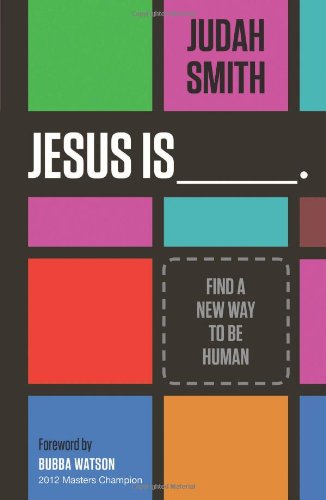Recently, I spent a week in Jerusalem. As far as holidays go, this one (I like to call it my pilgrimage), was one of the most interesting, intense and insightful trips I’ve ever been on. As you may be aware, there is currently a conflict going on between Israel and Palestine. You only have to switch on the news to see that there is some kind of tension between the two nations, both feel they have a claim to the land, and can’t seem to come to a compromise over the matter. I went to the country rather naive about the situation, and if I’m honest I still don’t really understand it completely, but having conversations with various people while I was there helped me to see both sides of the argument, and made me realise that this conflict can’t be won unless both parties agree to disagree and work together. Of course it’s not my place to tell anyone what to do, whatever side they’re on, but if this trip has taught me anything, (aside from the fact that there are apparently no limits to the amount of photos I can upload to Instagram in a day, that I can still be hungry after eating my own body weight in hummus and that if you get water from the dead sea in your eye it REALLY HURTS!) it’s taught me that I need to think more broadly about the way I deal with disagreements in my own life.No matter what you think about any given issue, there will always be someone ready to disagree with you about it. Whether it’s politics, gay marriage, if a tampon is a luxury product or whether that dress was white and gold or blue and black (blue and black, obviously); the fact is we don’t all agree about everything. The beauty of the human race is that we are not all the same. We all have differing opinions and stances on issues, and usually the bigger the issue, the stronger our opinion. Difference and disagreement have the power to move us forwards as a race and allows change to happen. If it wasn’t for people like William Wilberforce challenging slavery in the 18th century, or Martin Luther King Jr. standing up for racial equality as well as many others then we wouldn’t be living in the world we do now. However, disagreement also has the power to be extremely destructive if not handled in a healthy way. Problems come when we let disagreement get in the way of our relationship with a person, when we let emotions drive the argument and when we aren’t getting our way, turn from merely arguing our position to attacking a person. We let the disagreement cloud our views and rather than seeing a person we can love, we see a problem that needs to be changed or removed.
>
“Have nothing to do with foolish, ignorant controversies; you know that they breed quarrels. And the Lord’s servant must not be quarrelsome but kind to everyone, able to teach, patiently enduring evil, correcting his opponents with gentleness. God may perhaps grant them repentance leading to a knowledge of the truth.”
In this passage from Paul’s letter to Timothy, he tells us to approach disagreements with gentleness, and to be kind to everyone. Quarrels and tantrums will cause upset, damage and destroy relationships. If we approach disagreement with love, we’re able to honour the person or persons we disagree with in kindness, and not be clouded into thinking their opinion makes them any less human. One of Jesus’ best know quotes is “Love your neighbour as yourself…”, and when he is asked for his definition of who our neighbour is in Luke 10, he explains it with the parable of the Good Samaritan.
This parable tells the story of a man who was robbed on the road from Jerusalem to Jericho, he is left for dead by the side of the road and we hear about 3 individuals who encountered him, and the way they treated him. The first is a priest, who decides to cross on to the other side of the road, pretending he didn’t see. The second is a Levite, who similarly crosses the road, ignoring the man. Finally, we are told a Samaritan sees the man and shows him compassion. He binds the man’s wounds and takes him to an inn to care for him, and even pays the innkeeper to keep the man for as long as it takes for him to recover. If you’re not familiar with Ancient Israeli politics, the Samaritans and the Jews hated one another. They had disagreements over many things and often Jews would walk for miles to avoid going through Samaria. Despite their differences, the Samaritan showed this man compassion. Jesus tells this story to illustrate that we are all neighbours, that we aren’t meant to just love the people the same as us, but we must love everybody, even our enemies.
>
“But God shows his love for us in that while we were still sinners, Christ died for us.”
All of us are created by, and in the likeness of a good, beautiful, perfect God. This being, who transcends time, the universe and our limited understandings, loves us. This God created the world and everything in it, and yet we know that the reality is that this world is a broken and messy place. You only have to switch on the news to see that there is great evil in this world, every one of us has somehow been influenced by this and as such are not living in the fullness that we were created in. In some ways we, and the world we live in turned away from God and chose to live in disagreement with him. But God, rather than punish us, rather than try to attack us, moved towards us in love in the person of Jesus. Jesus came into the broken world and showed the world mercy, taught us about grace and prayed the prayer “Father forgive them” when we hung him on a cross and killed him. Somehow, Jesus’ sacrifice saved us. The death and resurrection of Jesus set us free from the power of death and darkness. While we haven’t seen it in full, it opened the door towards full reconciliation of the world and God.
It’s easy to approach our disagreements thinking it’s us or them, thinking that in order to win the argument we need to somehow beat the other by destroying their argument and “converting” them to our way of thinking. But the example of Jesus doesn’t teach that. Jesus came not by power or might but by love, showing us mercy and grace. He showed us that it’s less “us or them” and more “us FOR them”. He showed us that we need to work out our disagreements in love, not by fighting. The experimental rock band Gungor talk about this in their recent single “Us For Them”. The final Chorus is a mantra for this message, talking about the way that Jesus came into this world and challenging us to follow his example:
>
“Prepare the way of the Lord
Wielding mercy like a sword
Every mountaintop will be made low
Know, He holds the earth like dust
And His judgement comes to us
And His judgement is love
May our judgement be love”
We all have disagreements with people, some are big, some are small, some are so huge they take over our lives.
My challenge to you is to approach your conflicts in love. However big or however small they are, may you see the person on the other side as your neighbour. May you come towards them with love and gentleness. May you show them grace and mercy. And may that free you to see them not as a problem that needs to be fixed or removed but as a person.
Related Reading
Please feel free to comment or share the post using the links below, and don’t forget to sign up to receive my posts via email here!




